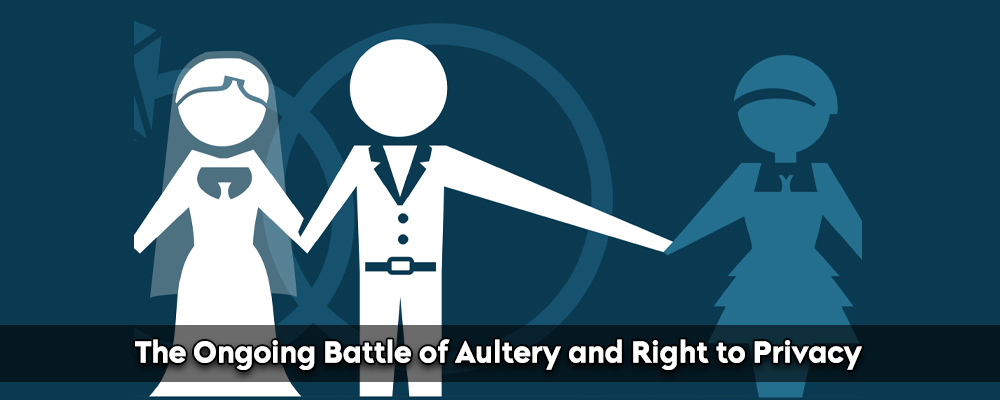The right to privacy is a fundamental aspect of personal autonomy, allowing individuals to safeguard their personal lives from unwarranted intrusion. However, when allegations of adultery arise within a marriage, the delicate balance between privacy and the pursuit of truth can be tested.
The Supreme Court is set to examine this complex issue, pondering whether the right to privacy of a spouse can be breached to prove allegations of adultery. The outcome of this legal deliberation will have significant implications for marital relationships and the privacy rights of individuals.
Adultery Allegations and Privacy Concerns
Adultery is a deeply sensitive and emotionally charged issue that can strain even the strongest of marriages. When faced with allegations of infidelity, the innocent spouse may feel compelled to gather evidence to substantiate their claims. In such cases, the question of violation of the right to privacy to prove alleged transgressions arises.
Need A Legal Advice
The internet is not a lawyer and neither are you. Talk to a real lawyer about your legal issue

Privacy is a cherished right protected by many legal systems worldwide, including within marriage. The notion of a private realm where individuals can freely express themselves, make personal choices, and maintain confidentiality is highly valued. It encompasses intimate conversations, personal correspondence, and the right to control one’s personal information. Breaching this privacy can have profound implications for trust and the overall dynamics of a relationship.
Role of Judiciary: Supreme Court
The Supreme Court is now confronted with the pivotal case of Sachin Arora v Manju Arorathat will shape the legal landscape surrounding the breach of a spouse’s privacy to substantiate allegations of adultery. The court must carefully consider the delicate balance between an individual’s right to privacy and the interest of justice.
The crux of the matter lies in determining the extent to which privacy can be invaded when allegations of adultery are at stake. They are-
- Should a spouse have unfettered access to the personal communications, social media accounts, or private spaces of their partner? or
- Does the right to privacy demand protection even in the face of serious accusations?
The court’s decision will impact the dynamics of trust and personal autonomy within marriages. It must weigh the potential harm caused by breaching privacy against the need to uncover the truth and protect the interests of the innocent spouse.
Implications for Marital Relationships
The Supreme Court’s ruling will have far-reaching implications for marital relationships. Privacy is a cornerstone of trust, intimacy, and emotional security within a marriage. Breaching this privacy can erode trust, damage emotional well-being, and strain the relationship further.
If the court allows unrestricted invasion of privacy in pursuit of proving adultery, it may set a dangerous precedent. Couples may be driven towards invasive surveillance, suspicion, and an environment of constant surveillance, leading to further deterioration of trust and privacy.
On the other hand, if the court upholds the right to privacy even in the face of adultery allegations, it could hinder the ability of the innocent spouse to gather evidence and seek justice. This might perpetuate a sense of injustice, allowing the guilty party to escape accountability.
Balancing Privacy and Justice
Striking a balance between privacy and justice is a formidable task. While the right to privacy must be respected, it is not absolute. Legal systems often recognize exceptions to the right to privacy in the pursuit of justice, such as in cases of criminal investigations.
The Supreme Court must consider alternative approaches that protect privacy while facilitating the pursuit of truth. This may involve establishing strict guidelines for the collection of evidence, ensuring that intrusion into privacy is proportionate, necessary, and subject to judicial oversight. Additionally, promoting alternative dispute resolution mechanisms, such as mediation, could offer couples a less invasive path to resolving their issues.
Conclusion
The Supreme Court’s impending deliberation on the breach of a spouse’s privacy to prove allegations of adultery raises important questions about the delicate balance between personal privacy and justice. The court’s decision will shape the legal framework surrounding privacy rights within marriages and have far-reaching implications for the dynamics of trust, intimacy, and personal autonomy.
While the pursuit of truth and justice is essential, it must be balanced with respect for an individual’s right to privacy. Striking this balance will require careful consideration, ensuring that privacy rights are protected without hindering the pursuit of justice or perpetuating a sense of injustice within marital relationships.
You can talk to a lawyer at Lead India for any kind of legal advice. In India, free legal advice online is available. Along with free legal advice online you can ask questions to experts online free in Lead India.





 Talk to a Lawyer
Talk to a Lawyer